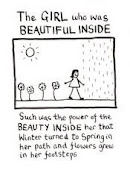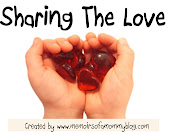
I've started reading Thomas Moore's Care of the Soul. When I got to part 2, which is about love, I looked ahead at the chapter titles, for there are many in that section of the book. One of them read "Mother" and another "Father." These two most important people in a person's life often represent the embodiment of love for us all the rest of our lives.
Parents teach us how to do things. And in teaching us that they often teach us about life and love. My parents were there. They took care of me. They fed me, clothed me, tended me when I was sick, and took me to school so that I could get an education. But it was my grandparents who taught me how to do the things I think of as bringing up a child. My grandmother taught me how to cook, make beds, clean a house, sew clothes, add and make fractions and enjoy the funny papers. My grandfather taught me how to plant and tend a garden, use every tool in his work shed, and play dominoes. With him and my grandmother I would go out and learn how to put a worm on a hook and catch fish, or watch where the white wing he shot fell into the brush and go out and bring it back. My grandfather and I would mow the lawn together, me at age 7 walking behind the huge lawnmower surrounded by his arms with my smaller hands on the handles between his big ones. So in my mind, even though I correctly call my parents Mom and Dad, it was my grandparents who really filled those roles.
From that upbringing a lot of my ideas about spirituality, family and faith arise. So I guess when I read those chapters in Moore's book, I may have to translate the information to apply to my grandparents instead of my parents. What that will entail I'm not sure yet. It may require me to define or redefine those roles so that they fit my life. Or I may end up redefining my ideas about love, what it is and how one shows it.
Today I'm going for a first visit with a man who may become my spiritual director. He is a pastoral counselor. That means he has training both in theology and therapy. Until recently I hadn't known such people existed. So when depression strikes, as it has of late, he will also be able to help me deal with that also.
I've never had spiritual direction and I'm a little nervous about it. Not knowing exactly what to expect, but hoping for the best, I've been thinking about what spirituality means to me. How do I want to address it? This is why I started reading the book. I worry if my religious beliefs will come into conflict with his. This is one question I must ask to ascertain if we will be a good fit. The gender issue may come into play. What other areas or topics might we discuss that will make me uncomfortable? To give my thoughts some focus I went to beliefnet.com and took their spirituality test. It didn't cover all the questions I'm so concerned about but it did give me a better idea of what my beliefs about spirituality were. That should help.
On the therapy side, I saw the same therapist for 7 years. She is good and was very effective for me at the beginning. Last year I stopped because 1) I wanted to feel well and did, 2) if I was to continue therapy I wanted to take it someplace she wasn't prepared to go. You build up relationships with your therapist just like you do with a doctor. So part of me is feeling a little guilty about changing therapists. Another concern is, "How much old ground will I have to cover with this new therapist to reach an effective place?" Additionally, knowing my tendency to jump into things without thinking them through first, I wonder if I haven't done the same here.
My insurance has set me up for an initial visit and 6 follow-ups. That is a reasonable time to do some work and find out if we fit. Unless of course, it doesn't work out on day one. If that happens I'm back to square one and pastoral counselors that are on your insurance's provider list are somewhat rare. So, I'm praying today that God will provide and all will work out well.
Wednesday, March 14, 2007
The Roles People Play
Labels:
family,
journeys,
spirituality
Subscribe to:
Post Comments (Atom)


















No comments:
Post a Comment